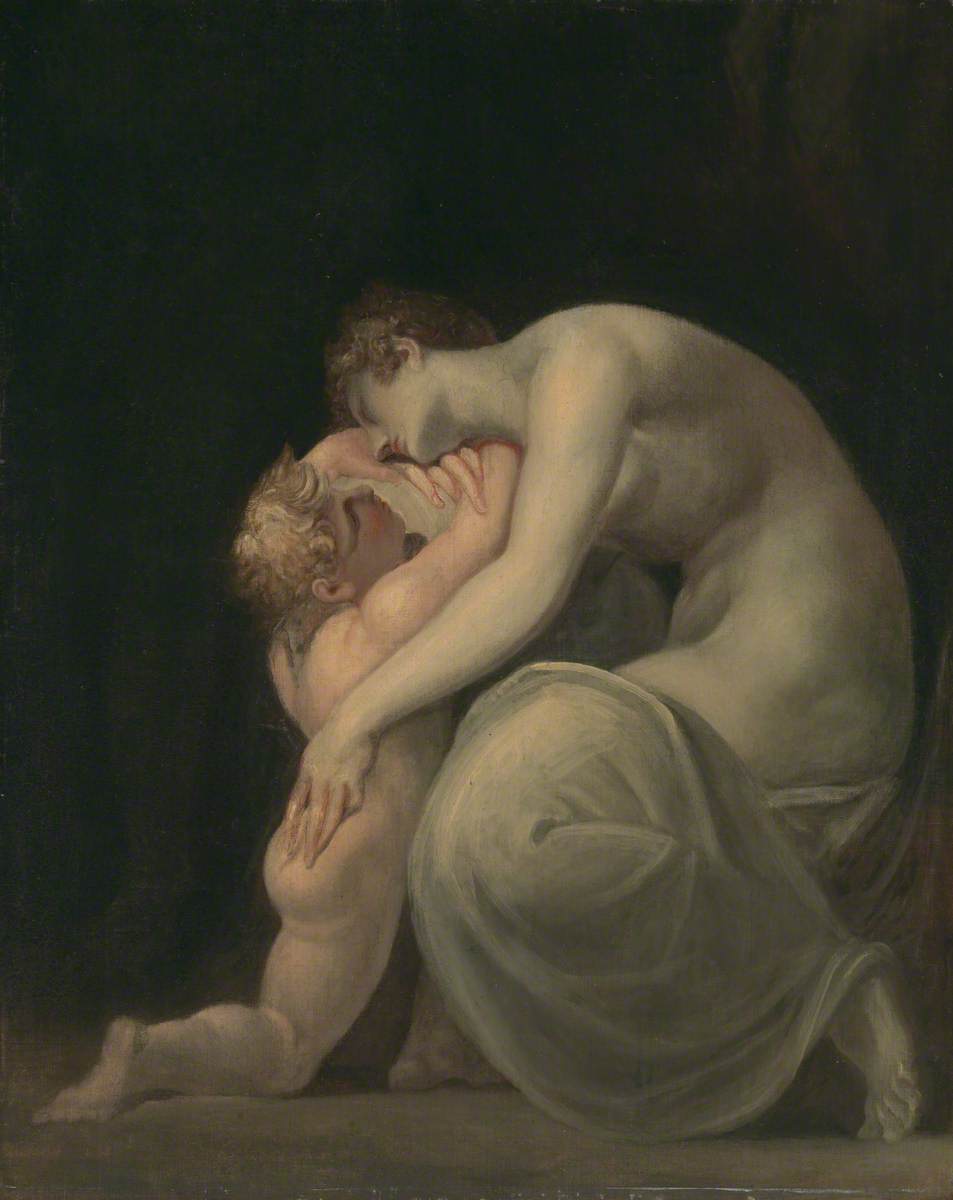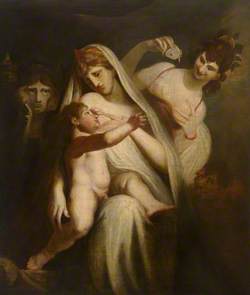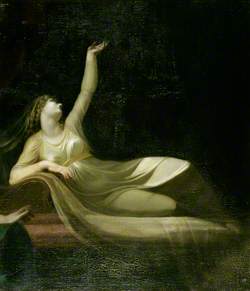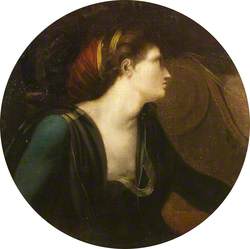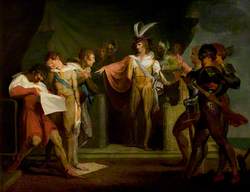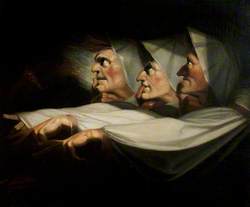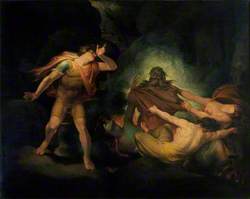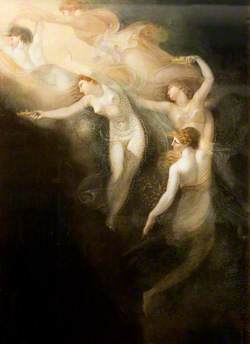How you can use this image
This image has been made available under a Creative Commons Zero licence (CC0). This means it can be used in any way, for commercial or non-commercial purposes.
Please acknowledge the collection who own the work with a photo credit — this helps spread the word about their resources.
To learn more about image reuse and Creative Commons, please see our image use page.
DownloadNotes
Add or edit a note on this artwork that only you can see. You can find notes again by going to the ‘Notes’ section of your account.
Ajax was a Greek warrior of outstanding courage in Homer's Iliad. When Achilles was killed by Paris, Ajax and Odysseus fight the Trojans together to retrieve his body for burial. Each claimed Achilles’s magical armour for himself, but Odysseus was ultimately awarded the prize. Furious, Ajax became crazed and slaughtered a herd of livestock thinking they were his enemies, through a trick of the goddess Athena. Upon coming to his senses, he was overcome with shame and fell upon his own sword. Fuseli’s painting is based on the ancient Greek tragedy Ajax by Sophocles and focuses on the aftermath of the great warrior’s suicide. His concubine, Tekemessa, and young son, Eurysakes, are shown here mourning his death. Tekemessa had been taken captive by Ajax, who was enchanted by her beauty during the Trojan War.
Title
Tekemessa and Eurysakes
Date
1800–1810
Medium
oil on canvas
Measurements
H 103.8 x W 82.9 cm
Accession number
B1976.7.29
Acquisition method
Paul Mellon Collection
Work type
Painting
